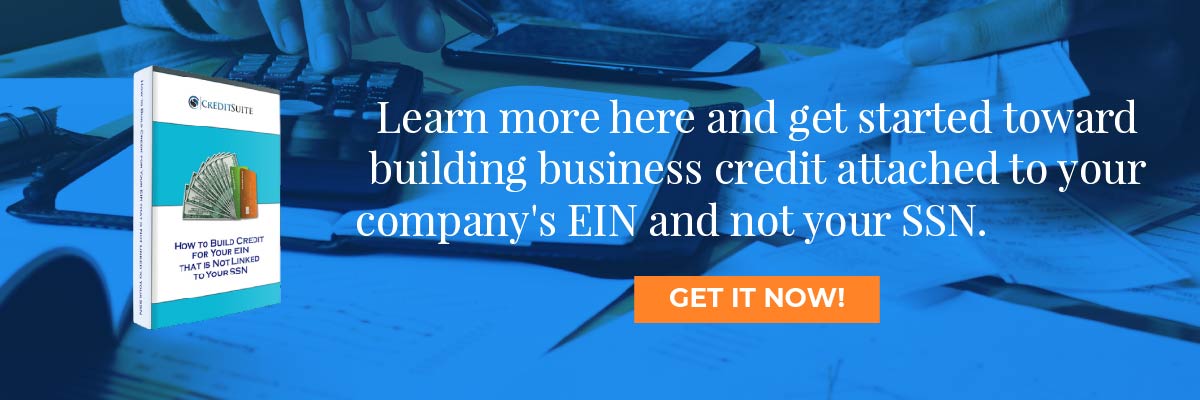- Connect With Us!
- (877) 600-2487
- info@creditsuite.com
How to Set Up a New Business in Massachusetts
Published By Janet Gershen-Siegel at May 8th, 2019
Starting a Business in Massachusetts
A new business in Massachusetts can be yours. Have you been wondering: precisely how do I start a business in Massachusetts? And more importantly, can I do so no matter what the economic conditions are? Can I start a new business in Massachusetts during a recession?
New Business in Massachusetts: Pros and Cons
Massachusetts is in the second highest set of ten states to start a new business in. And this is for the whole country, according to a 2016 article by Business Insider. But the Bay State scores average in the business tax climate category. And its startup activity score is not great.
Still, the state has a very high per capita GDP ($62,918). It also has the nation’s third highest education level of potential employees.
A large number of colleges in the area mean companies might do their best recruiting on campuses. Plus Massachusetts is close to other states in the area. The pool of potential employees easily extends to New Hampshire, Rhode Island, or Connecticut.
Recent Surge
In 2019, Dollar Sprout placed the Bay State at number seven for the best states to start a business in. keep in mind, of course, that the methods of Dollar Sprout and Business Insider differ.
Why the sudden change? Dollar Sprout says it’s the tight labor market with well-educated workers. And it’s also the very high 10-year business survival rate. In addition, Massachusetts boasts the third-highest annual income level for sole proprietorships.
However, the commonwealth still has high business filing fees.
New Business in Massachusetts: Initiatives
A new commitment to renewing the Bay State’s aging infrastructure will provide a wealth of construction and trades jobs in coming years.
Investments in infrastructure, which includes broadband and Wi-Fi, allows Massachusetts to create immediate employment opportunities. Plus the state has reduced its corporate tax rate from 8.75% in 2010 to a current rate of 8.25%.
Massachusetts Programs
The state’s Economic Development Incentive Program (EDIP) allows participating companies to get state and local tax incentives. This is in exchange for job creation, manufacturing job retention and private investment commitments.
At the same time, the Massachusetts Investment Tax Credit (ITC) offers a 3% credit for qualifying businesses. This is meant to enable the purchase or lease of qualified properties.
Start a New Business in Massachusetts – Massachusetts Top Industries
Per the Commonwealth’s official government website, the top industries in the Bay State are renewable energy, defense, life sciences, and finance. They are also information technology, manufacturing, creative, and maritime.
Massachusetts defines the creative industries as including “without limitation the many interlocking industry sectors that center on providing creative services such as advertising, architecture or creating and promoting intellectual property products such as arts, film, computer games, multimedia, or design.”
Smart business owners can take find new opportunities and advantage of the bigger industries in the area by offering goods or services such as data and other computer work. Another option is trucking for any industry. More options include design, and hospitality and catering.
Here is precisely how to start a new business in Massachusetts.
Start a New Business in Massachusetts – Massachusetts New Business Secretary of State Requirements
Register a Business Name
Reserve a business name on the Secretary of the Commonwealth’s website.
A business owner needs a unique name for their corporation. To find out if the name chosen for a corporation is unique, do a thorough search. Start by searching online records and government databases to see if the name chosen is available. To search the Massachusetts Corporate Database, go to Massachusetts Corporation information on the Secretary of State website.
A business owner can reserve the corporate name that they have chosen until ready to file Articles of Incorporation. This is by submitting an application to the Corporations Division. Download the form online at Reserve a Massachusetts Corporate Name. The filing fee is $30.00 and then the name will be reserved filing fee is $30.00 and then the name will be reserved for 60 days.
Business Permits and Licenses
Check at the Massachusetts Division of Professional Licensure. Be sure to look at the License Types, Forms, and Requirements page.
Local Permits and Licenses
Check with your local municipality, city or county office or website. See if there may be any local licensing or permit requirements.
For example, in Boston, go to the Small Business Permitting Guides page on the city of Boston website.
Start a New Business in Massachusetts – Business Registration
Let the Massachusetts Secretary of State Corporations Division get you the forms to complete.
Tax Registration
The best bet is the state online portal, MassTax Connect.
Start a New Business in Massachusetts – Virtual Offices
Alliance offers Massachusetts virtual business office space in Boston, Burlington, and Hyannis.
For Worcester virtual business offices, go to Regus.
DaVinci has Massachusetts virtual office spaces in the following cities.
Eastern Massachusetts (including the Cape and Islands)
DaVinci covers Beverly, Braintree, Canton, and Needham. They also have space in Hingham, Mansfield, and Newton. DaVinci also covers North Andover, Quincy, and Woburn.
Central Massachusetts
DaVinci covers Boxborough, Framingham, Marlborough, and Westborough.
None of the bigger providers have space in western Massachusetts.
Business owners looking for Massachusetts virtual offices in Pittsfield or Springfield, or elsewhere in the state, can try local business owners. They might also ask computer groups for leads in this area. Other options may be to seek virtual business office space in nearby states. These are Connecticut, New Hampshire, New York, Rhode Island, and Vermont.
Start a New Business in Massachusetts – Establish Business Credit
Company credit is credit in a small business’s name. It doesn’t link to a business owner’s consumer credit, not even when the owner is a sole proprietor and the sole employee of the business.
Because of this, a business owner’s business and personal credit scores can be very different.
The Benefits
Since small business credit is distinct from consumer, it helps to secure an entrepreneur’s personal assets, in the event of court action or business insolvency.
Also, with two distinct credit scores, an entrepreneur can get two separate cards from the same merchant. This effectively doubles purchasing power.
Another advantage is that even startup companies can do this. Going to a bank for a business loan can be a formula for disappointment. But building small business credit, when done the right way, is a plan for success.
Consumer credit scores depend on payments but also various other considerations like credit usage percentages.
But for business credit, the scores really only depend on if a company pays its bills on time.
Learn more here and get started toward building business credit attached to your company’s EIN and not your SSN.
The Process
Establishing company credit is a process, and it does not occur without effort. A company will need to actively work to build business credit.
However, it can be done readily and quickly, and it is much speedier than establishing personal credit scores.
Vendors are a big part of this process.
Carrying out the steps out of order will cause repetitive denials. Nobody can start at the top with small business credit. For example, you can’t start with retail or cash credit from your bank. If you do, you’ll get a rejection 100% of the time.
Start a New Business in Massachusetts – Small Business Fundability
A small business needs to be fundable to credit issuers and merchants.
Consequently, a business will need a professional-looking website and email address. And it needs to have website hosting from a merchant like GoDaddy.
Additionally, company telephone and fax numbers should have a listing on ListYourself.net.
Likewise, the business phone number should be toll-free (800 exchange or comparable).A business will also need a bank account devoted solely to it, and it needs to have all of the licenses essential for operating.
Learn more here and get started toward building business credit attached to your company’s EIN and not your SSN.
Dealing with the Internal Revenue Service
Visit the Internal Revenue Service website and get an EIN for the business. They’re free of charge. Select a business entity like corporation, LLC, etc. A company can begin as a sole proprietor. But they will more than likely want to change to a kind of corporation or an LLC. This is in order to limit risk. And it will optimize tax benefits.
A business entity will matter when it concerns tax obligations and liability in case of a lawsuit. A sole proprietorship means the entrepreneur is it when it comes to liability and tax obligations. Nobody else is responsible.
Sole Proprietors Take Note
If you run a business as a sole proprietor, then at least be sure to file for a DBA. This is ‘doing business as’ status.
If you do not, then your personal name is the same as the business name. Hence, you can end up being directly responsible for all small business financial obligations.
Also, per the IRS, by having this structure there is a 1 in 7 possibility of an IRS audit. There is a 1 in 50 probability for corporations! Steer clear of confusion and substantially reduce the odds of an Internal Revenue Service audit as well.
Starting Off the Business Credit Reporting Process
Begin at the D&B website and get a cost-free D-U-N-S number. A D-U-N-S number is how D&B gets a small business into their system, to produce a PAYDEX score. If there is no D-U-N-S number, then there is no record and no PAYDEX score.
Once in D&B’s system, search Equifax and Experian’s websites for the small business. You can do this at fastcs.wpengine.com/reports. If there is a record with them, check it for accuracy and completeness. If there are no records with them, go to the next step in the process.
By doing this, Experian and Equifax will have activity to report on.
Vendor Credit Tier
First you should build trade lines that report. This is also called the vendor credit tier. Then you’ll have an established credit profile, and you’ll get a business credit score.
And with an established business credit profile and score you can start to acquire credit in the retail and cash credit tiers.
These kinds of accounts tend to be for the things bought all the time, like marketing materials, shipping boxes, outdoor work wear, ink and toner, and office furniture.
But first off, what is trade credit? These trade lines are credit issuers who will give you starter credit when you have none now. Terms are often Net 30, rather than revolving.
Hence, if you get an approval for $1,000 in vendor credit and use all of it, you will need to pay that money back in a set term, like within 30 days on a Net 30 account.
Details
Net 30 accounts must be paid in full within 30 days. 60 accounts have to be paid in full within 60 days. Compared to with revolving accounts, you have a set time when you must pay back what you borrowed or the credit you used.
To launch your business credit profile properly, you ought to get approval for vendor accounts that report to the business credit reporting agencies. When that’s done, you can then make use of the credit.
Then pay back what you used, and the account is on report to Dun & Bradstreet, Experian, or Equifax.
Vendor Credit Tier – It Helps
Not every vendor can help like true starter credit can. These are merchants that will grant an approval with marginal effort. You also want them to be reporting to one or more of the big three CRAs: Dun & Bradstreet, Equifax, and Experian.
You want 5 to 8 of these to move onto the next step, which is the retail credit tier. But you may need to apply more than once to these vendors. So, this is to demonstrate you are dependable and will pay on time.
Retail Credit Tier
Get 5 to 8 or more vendor trade accounts reporting to at least one of the CRAs. Then move to the retail credit tier. These are businesses such as Office Depot and Staples.
Just use your Social Security Number and date of birth on these applications for verification purposes. For credit checks and guarantees, use the company’s EIN on these credit applications.
One good example is Lowe’s. They report to D&B, Equifax and Business Experian. They want to see a D-U-N-S and a PAYDEX score of 78 or more.
Fleet Credit Tier
Are there 8 to 10 accounts reporting? Then move to the fleet credit tier. These are service providers such as BP and Conoco. Use this credit to purchase fuel, and to fix, and maintain vehicles. Only use your Social Security Number and date of birth on these applications for verification purposes. For credit checks and guarantees, make certain to apply using the company’s EIN.
One such example is Shell. They report to D&B and Business Experian. They want to see a PAYDEX Score of 78 or higher and a 411 small business telephone listing.
Shell may claim they want a certain amount of time in business or profits. But if you already have adequate vendor accounts, that won’t be necessary. And you can still get an approval.
Learn more here and get started toward building business credit attached to your company’s EIN and not your SSN.
Cash Credit Tier
Have you been sensibly managing the credit you’ve up to this point? Then progress to the cash credit tier. These are companies such as Visa and MasterCard. Only use your Social Security Number and date of birth on these applications for verification purposes. For credit checks and guarantees, use your EIN instead.
One example is the Fuelman MasterCard. They report to D&B and Equifax Business. They want to see a PAYDEX Score of 78 or higher. And they also want you to have 10 trade lines reporting on your D&B report.
Plus, they want to see a $10,000 high credit limit reporting on your D&B report (other account reporting).
Also, they want you to have an established business. These are companies like Walmart and Dell, and also Home Depot, BP, and Racetrac. These are usually MasterCard credit cards. If you have 14 trade accounts reporting, then these are doable.
Start a New Business in Massachusetts – Monitor Your Business Credit
Know what is happening with your credit. Make certain it is being reported and fix any errors ASAP. Get in the practice of taking a look at credit reports. And dig into the details, not just the scores.
We can help you monitor business credit at Experian and D&B for only $24/month. See: fastcs.wpengine.com/monitoring.
Update Your Records
Update the data if there are inaccuracies or the info is incomplete.
Fix Your Business Credit
So, what’s all this monitoring for? It’s to challenge any errors in your records. Mistakes in your credit report(s) can be taken care of. But the CRAs typically want you to dispute in a particular way.
Disputes
Disputing credit report mistakes commonly means you mail a paper letter with duplicates of any proofs of payment with it. These are documents like receipts and cancelled checks. Never send the originals. Always mail copies and retain the original copies.
Fixing credit report inaccuracies also means you precisely itemize any charges you challenge. Make your dispute letter as understandable as possible. Be specific about the problems with your report. Use certified mail so that you will have proof that you sent in your dispute.
A Word about Building Business Credit
Always use credit responsibly! Don’t borrow beyond what you can pay off. Monitor balances and deadlines for repayments. Paying off promptly and fully will do more to increase business credit scores than almost anything else.
Growing company credit pays. Great business credit scores help a small business get loans. Your loan provider knows the company can pay its debts. They recognize the business is for real.
The business’s EIN links to high scores and lending institutions won’t feel the need to ask for a personal guarantee.
Business credit is an asset which can help your small business for years to come.
Massachusetts Business Loans and Grants
We LOVED this article from LendEDU, all about business loans and grants in Massachusetts.
Learn more here and get started toward opening a new business in Massachusetts.
Want to start a new business someplace else in America? Then check out our handy guide to starting a business in any state in the country.
Massachusetts’s Response to COVID-19
This is how Massachusetts is handling the novel coronavirus. On March 16, Governor Charlie Baker announced a $10 million small business recovery loan fund to help companies struggling because of efforts to slow the coronavirus. The fund will provide emergency capital up to $75,000 to Massachusetts-based.
Businesses with under 50 full- and part-time employees, including nonprofit groups. Loans are immediately available to eligible businesses with no payments due for the first six months.

 " class="attachment-blog-single size-blog-single wp-post-image" alt="Get Business Credit Cards for New Businesses Credit Suite-Business Line of Credit Decoded" title="Get Business Credit Cards for New Businesses">>
" class="attachment-blog-single size-blog-single wp-post-image" alt="Get Business Credit Cards for New Businesses Credit Suite-Business Line of Credit Decoded" title="Get Business Credit Cards for New Businesses">>